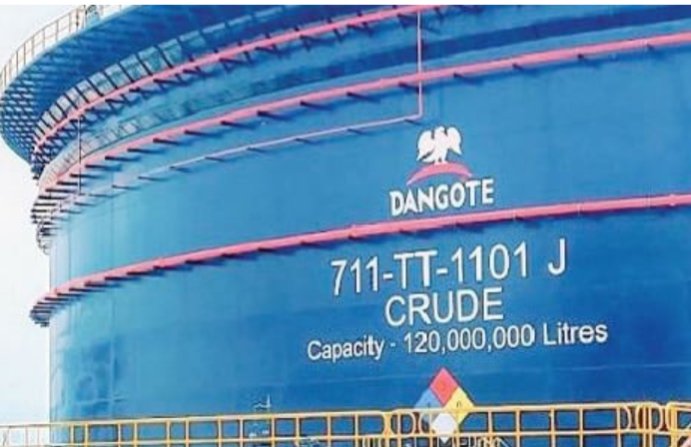When Private Courage Replaces Public Failure: Lessons from Dangote Refinery

By Editorial Team
When history remembers Nigeria’s economic transition in the 21st century, the name Aliko Dangote will stand out as one of the few who dared to fill the void created by decades of government failure. Dangote saw a vacuum in the oil sector, one left gaping by corruption, inefficiency and mismanagement among government officials, the Nigerian National Petroleum Company (NNPC) and powerful unions and he seized the opportunity to act where the state had failed.
That bold step gave birth to the Dangote Refinery, the largest single-train refinery in Africa and one of the most ambitious industrial projects in the world. Its establishment was not because the government offered him monopolistic privileges. Rather, it was because he did what successful investors around the world do, identify a national need, take the risk and fill the gap with private ingenuity and capital.
Those quick to accuse Dangote of seeking monopoly often forget that in an open economy, opportunities abound for all who have the courage and resources to act. The government did not block anyone from investing in the oil sector. What was missing was the willpower, vision and discipline to confront the deep-rooted corruption that crippled Nigeria’s four state-owned refineries and left the country dependent on fuel imports for decades. Dangote did not create that failure. He only responded to it.
Across the globe, major private investors play vital roles in keeping nations and industries alive. The world’s great economies thrive not because governments run every enterprise, but because private citizens step in to do what public institutions cannot do efficiently. Dangote’s refinery fits that global pattern. He saw an opportunity in Nigeria’s inability to refine its own crude oil and turned it into a venture that now promises to change the country’s energy landscape.
The irony of the Nigerian situation is that those who have failed the country for years, officials who pocketed billions through shady oil deals and subsidy scams are often the loudest critics when someone else succeeds where they failed. There are cabals in nearly every sector of the economy who thrive on the government’s weakness. They make fortunes from inefficiency and sabotage every attempt at reform. Whenever a new government or private investor attempts to fix the problem, these vested interests launch a full-scale war using unions, propaganda, media and influence networks to protect their corrupt gains.
We must be honest with ourselves: the problem is not Dangote. The problem is Nigeria’s resistance to progress.
The story is not limited to the oil sector. Take the steel industry, for example. The Ajaokuta Steel Complex and the Aladja Steel Plant remain symbols of Nigeria’s industrial stagnation. Despite billions of dollars sunk into them, they have never produced to capacity. Successive governments have promised to revive them, but all have failed. The facilities are rotting away and no investor has dared to pick up the challenge. If tomorrow Dangote announces plans to venture into steel industry, the same critics calling him a monopolist today will rise again to accuse him of controlling too many sectors.
This hypocrisy is a reflection of our national mindset, a mindset that celebrates mediocrity and punishes excellence. Instead of blackmailing investors who demonstrate vision, Nigeria should be creating an environment where more of them can thrive. The private sector is the engine of modern economies. Nations like China, the United States, and South Korea became industrial giants because they encouraged entrepreneurship and rewarded productivity, not because they attacked those who took bold steps.
It is important, of course, to emphasize that no investor is above the law. Dangote and his companies must operate within the rules and uphold global best practices. Regulation agencies should ensures fairness, protects consumers and maintains competition. But regulation should not become a weapon in the hands of corrupt interests determined to cripple progress. Nigeria cannot afford to go back to the dark days of endless queues at petrol stations, where citizens spent hours struggling to buy fuel while a few powerful individuals enriched themselves from scarcity.
The Dangote Refinery is more than a private business. It is a symbol of what is possible when vision meets determination. It is proof that Nigerian entrepreneurs can build world-class infrastructure without waiting for foreign aid. The refinery has the potential to stabilize the supply of petroleum products, save the country billions in foreign exchange, create jobs and stimulate downstream industries such as petrochemicals, plastics, and fertilizer.
It is therefore counterproductive for unions, major marketers, depot owners and political interest groups to frustrate its operations under the guise of fighting for “public interest.” The public interest is best served when Nigeria refines its crude oil locally, cuts import costs and channels the savings into health, education and infrastructure.
Beyond Dangote, this is a wake-up call to Nigeria’s wealthy class and policymakers. The country’s future depends on bold investments in critical sectors. Instead of fixating on politics, our billionaires should emulate Dangote’s courage by exploring opportunities in steel, solid minerals, agriculture, power generation and manufacturing. A country of over 200 million people cannot continue to rely on imports for survival.
Government also has a role to play. It must ensure a level playing field for all investors, maintain transparent policies and enforce accountability. But more importantly, it must confront the entrenched cabals who thrive on failure. As long as corruption remains the main driver of decision-making in public institutions, no meaningful development can take place.
The success of Dangote Refinery has already begun to inspire confidence among local and foreign investors. It shows that Nigeria is not a hopeless case. It shows that with the right leadership, capital and focus, private enterprise can transform even the most difficult environment. That momentum should not be lost to envy or political manipulation.
Critics who genuinely care about the economy should channel their energy towards demanding efficiency, transparency and fair competition, not towards tearing down the few who still believe in Nigeria’s potential. We cannot build a prosperous nation by discouraging success.
Dangote’s initiative should serve as a lesson in patriotism, not a target for vilification. While he must be held accountable like any other business operator, his refinery represents a turning point in Nigeria’s industrial history. It offers hope that with determination, Nigerians can build and sustain projects that meet global standards.
Nigeria’s path to industrialization lies not in endless government committees or policy statements, but in bold private actions like this. The sooner we realise this, the faster we can move away from dependency and embrace genuine economic freedom.
As a nation, we must decide whether we want to remain trapped in the cycle of corruption, inefficiency and sabotage or rise above it through innovation and courage. Dangote has made his choice. The rest of us must now decide ours.








In fact , every Nigerian who has worked at the echelon of the NNPC within the last 25 years should be called for prosecution. They should come and explain to Nigerians how the 4 state owned refineries were grounded.
They should all face death penalty by hanging, else those alive among them will continue to trouble the state.